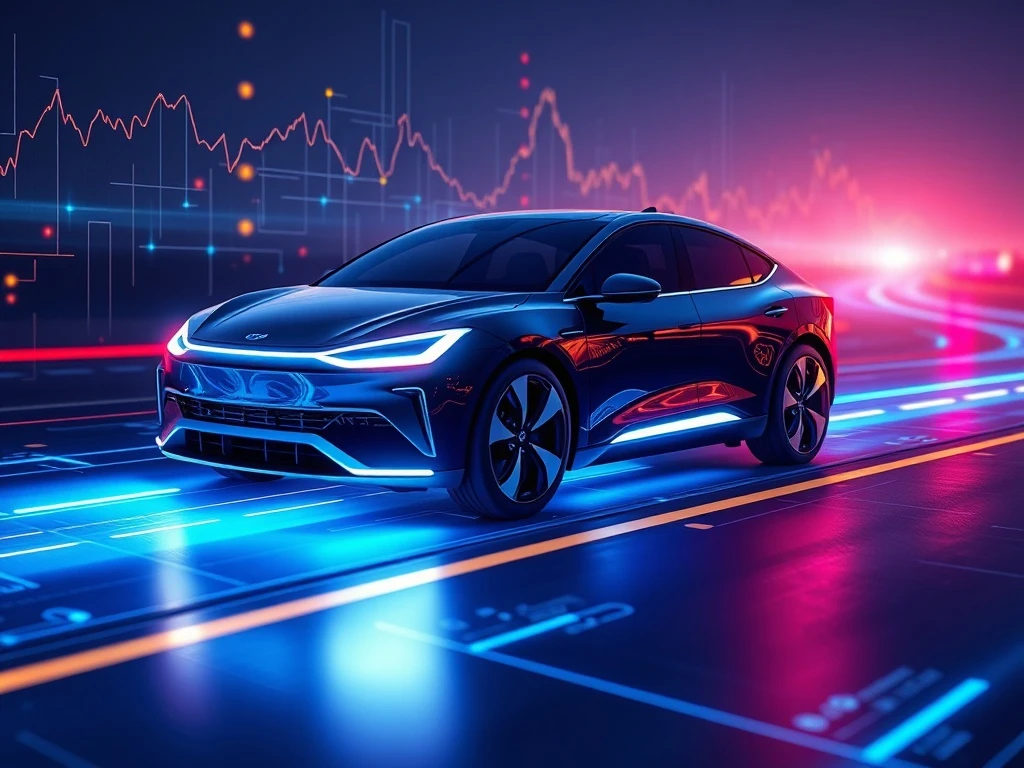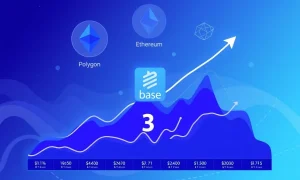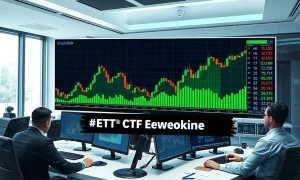The automotive industry stands on the brink of a profound transformation. Historically, investing in vehicles meant purchasing entire cars, often limiting participation to a select few. However, a groundbreaking concept is emerging: Tokenized Car Investment. This innovative approach leverages blockchain technology to democratize access to high-value automotive assets, opening new avenues for investors globally. Consequently, individuals can now own fractional shares of luxury cars, classic automobiles, or even entire fleets, all managed through secure digital tokens. This marks a significant shift, redefining how we perceive and engage with vehicle ownership and investment.
Understanding Tokenized Car Investment
What exactly is Tokenized Car Investment? Simply put, it involves converting ownership rights of a physical car into digital tokens on a blockchain. Each token represents a fractional share of the underlying asset. Therefore, instead of buying an entire vehicle, investors purchase a portion of it, represented by these tokens. This process, known as asset tokenization, brings unprecedented liquidity and accessibility to the automotive market. Furthermore, it allows multiple individuals to co-own a single vehicle, sharing in its value appreciation or revenue generation.
For example, a rare classic car, valued at millions, becomes accessible to a broader investor base. Previously, only ultra-high-net-worth individuals could afford such an asset. Now, through tokenization, its ownership can be divided into thousands of tokens. Consequently, investors can buy just one or a few tokens, gaining exposure to an asset class that was once out of reach. This model significantly lowers the barrier to entry, making premium automotive assets available to a wider demographic. Moreover, the transparency inherent in blockchain technology ensures clear and verifiable ownership records for every token holder.
The Blockchain Revolution Driving Automotive Investment
Blockchain technology forms the backbone of Tokenized Car Investment. It provides a secure, transparent, and immutable ledger for recording ownership. Specifically, smart contracts, self-executing agreements stored on the blockchain, automate the rules governing these tokens. This eliminates the need for intermediaries, reducing costs and increasing efficiency. For instance, smart contracts can automatically distribute rental income from a tokenized fleet among all token holders, ensuring fairness and transparency.
The benefits extend beyond mere ownership. Blockchain enhances trust by providing a verifiable history for each vehicle. This includes maintenance records, accident history, and mileage, all immutably stored. Consequently, investors gain greater confidence in the asset’s condition and value. Additionally, the peer-to-peer nature of blockchain facilitates direct transactions between buyers and sellers of tokens, further streamlining the investment process. This decentralized approach fundamentally transforms traditional automotive investment paradigms, offering a more efficient and trustworthy ecosystem.
How to Engage in Tokenized Car Investment Opportunities
Participating in Tokenized Car Investment is becoming increasingly straightforward. Several platforms specialize in asset tokenization, connecting investors with unique automotive opportunities. First, potential investors must identify a reputable platform. These platforms typically list various tokenized assets, including luxury cars, vintage vehicles, or even new electric vehicle fleets. Therefore, research is crucial to select a platform that aligns with your investment goals and risk tolerance.
The investment process generally involves a few key steps:
- Platform Registration: Create an account on a chosen tokenization platform.
- Identity Verification: Complete Know Your Customer (KYC) procedures to comply with regulations.
- Browse Offerings: Explore available tokenized car projects and their associated details.
- Purchase Tokens: Acquire tokens using cryptocurrency or fiat currency, depending on the platform.
- Manage Holdings: Monitor your investment through the platform’s dashboard, often linked to a digital wallet.
Furthermore, understanding the specific terms of each token offering is vital. This includes the underlying asset, its valuation, revenue-sharing models, and liquidity options. Consequently, diligent due diligence ensures informed investment decisions.
Key Advantages of Tokenized Car Investment
Tokenized Car Investment offers several compelling advantages over traditional automotive investment methods. Firstly, it provides enhanced liquidity. Unlike physical cars, which can take time to sell, tokens can be traded almost instantly on secondary markets. This allows investors to enter and exit positions more flexibly. Secondly, it lowers the entry barrier significantly. As mentioned, fractional ownership enables smaller investments, making high-value assets accessible to a broader range of investors.
Moreover, global accessibility is a major benefit. Blockchain-based investments transcend geographical boundaries, allowing anyone with an internet connection to participate. This opens up new capital pools for automotive projects and diverse investment opportunities for individuals worldwide. Finally, the inherent transparency and security of blockchain technology build trust. Every transaction is recorded on an immutable ledger, reducing fraud and ensuring clear ownership records. Thus, investors gain peace of mind knowing their assets are securely managed and verifiable.
Navigating the Risks in Tokenized Car Investment
While promising, Tokenized Car Investment is not without its risks. Investors must carefully consider these factors before committing capital. Firstly, market volatility is a significant concern. The value of tokens can fluctuate rapidly, influenced by market demand, the performance of the underlying asset, and broader cryptocurrency market trends. Therefore, potential for capital loss exists, similar to any other investment.
Secondly, the regulatory landscape for tokenized assets is still evolving. Different jurisdictions may have varying rules regarding ownership, taxation, and trading. This uncertainty can pose challenges for platforms and investors alike. Furthermore, technological risks are present. While blockchain is robust, smart contract vulnerabilities or platform security breaches could potentially impact investments. Consequently, choosing platforms with strong security measures and a proven track record is paramount. Lastly, the illiquidity of the underlying physical asset, even if the tokens are liquid, can still pose a risk if the asset itself loses value or faces damage. Diligent research and risk assessment are essential for successful engagement in this emerging market.
The Future Landscape of Automotive Ownership and Tokenization
The long-term outlook for Tokenized Car Investment appears highly promising. As blockchain technology matures and regulatory frameworks become clearer, its adoption in the automotive sector will likely accelerate. We could see a future where shared mobility services are entirely tokenized, allowing users to earn tokens for carpooling or contributing to autonomous vehicle networks. This would create a dynamic ecosystem where vehicles are not just modes of transport but also income-generating assets for a wider community.
Furthermore, tokenization could revolutionize vehicle financing and leasing models. Smart contracts could automate payments, ownership transfers, and even insurance claims, making the entire lifecycle of a vehicle more efficient and transparent. Classic car collectors might use tokens to fund restorations, granting fractional ownership to supporters. The possibilities are vast, indicating a future where automotive ownership is more flexible, accessible, and integrated with digital economies. Ultimately, this innovation is poised to reshape how we interact with and invest in the vehicles of tomorrow.
Conclusion
Tokenized Car Investment represents a significant evolution in the automotive and financial sectors. By leveraging blockchain technology, it offers unprecedented opportunities for fractional ownership, enhanced liquidity, and global accessibility to valuable automotive assets. While inherent risks, such as market volatility and regulatory uncertainty, require careful consideration, the potential benefits are substantial. As this innovative field continues to develop, it promises to democratize investment, redefine vehicle ownership, and drive the automotive industry into a more connected and efficient future. Consequently, staying informed and approaching these opportunities with a well-researched strategy will be key for investors looking to participate in this exciting new frontier.
Frequently Asked Questions (FAQs)
What is Tokenized Car Investment?
Tokenized Car Investment involves converting the ownership rights of a physical car into digital tokens on a blockchain. Each token represents a fractional share of the vehicle, allowing multiple investors to own parts of it.
How does blockchain technology benefit car investment?
Blockchain provides a secure, transparent, and immutable ledger for recording ownership and transactions. It enables smart contracts for automated processes, enhances liquidity through fractional ownership, and builds trust through verifiable data like maintenance history.
Can I invest in any type of car through tokenization?
While the concept can apply to various vehicles, most current tokenized car investment opportunities focus on high-value assets like luxury cars, classic vehicles, or commercial fleets, due to the economics of tokenization.
What are the main advantages of this investment model?
Key advantages include increased liquidity for assets, lower entry barriers for investors, global accessibility, and enhanced transparency and security provided by blockchain technology.
What risks should I consider before investing in tokenized cars?
Potential risks include market volatility, an evolving regulatory landscape, technological vulnerabilities (e.g., smart contract bugs), and the inherent illiquidity of the physical asset itself.
Is Tokenized Car Investment regulated?
The regulatory environment for tokenized assets, including cars, is still developing globally. Regulations vary by jurisdiction, and investors should be aware of the legal and compliance aspects in their region and for the platform they use.








